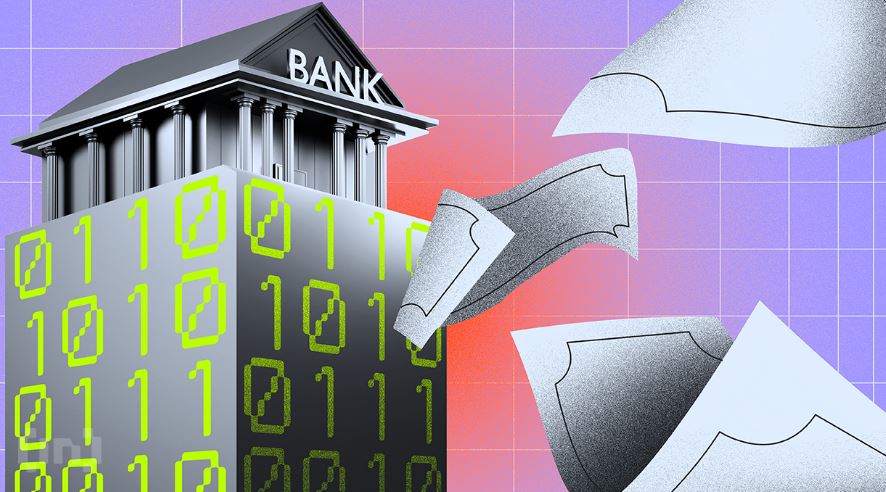Digital Currencies from the Central Bank (CBDCs): Africa’s Strong Tryst with What’s in store

To sum things up
- Africa is at the front of monetary development with the reception of National Bank Advanced Monetary forms (CBDCs), intending to overcome any barrier left by customary banking.
- Leading examples of CBDCs’ potential benefits in promoting welfare and financial inclusion are Ghana’s e-Cedi and Nigeria’s eNaira.
- Notwithstanding its extraordinary potential, CBDC reception faces difficulties like framework, discernment, and expected disturbances to existing financial frameworks.
A monetary unrest unobtrusively unfurls in the core of the world’s second-biggest mainland. National Bank Computerized Monetary standards (CBDCs) have become in excess of a contemporary idea. They promise a revolutionary future in Africa.
Africa is quietly winding around a story that could shape our reality’s money related future. CBDCs have become the dominant focal point, and keeping in mind that cutting-edge economies banter their reception, numerous African countries are hustling ahead.
Africa’s Unbanked Shift From Mobile Payments to CBDCs
Africa’s technological development is a compelling and one-of-a-kind tale. Avoiding the time of landlines, the landmass dove straightforwardly into the versatile age. This progress was not simply mechanical — it reshaped social orders.
Stages like M-Pesa carried monetary admittance to corners of the landmass already immaculate by conventional banking.
For sure, conventional financial left holes in Africa. From the bustling markets of Lagos to the tranquil coastlines of Madagascar, approximately 350 million adults are untouched by formal financial systems, even though the region’s average account ownership rate increased to over 70%.
“In Sub-Saharan Africa, [the increase in the average rate of account ownership] was largely due to the adoption of mobile money… Mobile money has become an important enabler of financial inclusion in Sub-Saharan Africa — especially for women — as a driver of account ownership and of account usage through mobile payments, saving, and borrowing,” reported the World Bank.
The whispers of a subsequent digital transformation fueled by CBDCs are now carried by the winds of change.
CBDCs, with their commitment of solidness and computerized ease, entice these huge numbers into another financial age. Rather than the wild swings of decentralized cryptos, CBDCs offer a reasonable mix — computerized benefits under a directed, government-supported umbrella.
African Nations Making Significant Strides to Adopt CBDCs
The adoption of CBDC in Africa can be seen in Nigeria’s journey with its digital currency, eNaira.
Sent off in 2021, the computerized money confronted suspicion. Now that the situation has changed, there are over 13 million wallets and more than $47.7 million in transactions.
“The eNaira has emerged as the electronic payment channel of choice for financial inclusion and executing social interventions,” said Godwin Emefiele, the Central Bank of Nigeria’s governor.
The eNaira is as of now not a computerized token however an instrument of government assistance, monetary inclusivity, and strategy. By entwining the eNaira with government assistance drives, Nigeria’s administration isn’t just disseminating help. It is winding around another cultural texture where the unbanked feel included.
Be that as it may, this isn’t simply Nigeria’s account.
Ghana’s experiments with the e-Cedi become clear as you travel west. While still in its outset, the e-Cedi highlights Ghana’s desire to use advanced devices for cultural great.
Back toward the east, Kenya, a country previously acclaimed for its M-Pesa achievement, considers the conceivable outcomes of a computerized peddling. This isn’t simple thought yet a country’s goal to enhance its monetary scene.
In addition, South Africa’s aspirations to digitize not only its currency but also its financial structures, remittances, and even monetary policy mechanisms are being echoed in whispers in the south.
“CBDCs are an entirely different matter. In our view, wholesale CBCDs are potentially useful. They could exploit the self-verifying properties of blockchain to simplify inter-bank clearing. We also think retail CBDCs could serve a social purpose, particularly by increasing participation in the formal financial system, and by reducing opportunities for tax evasion and other forms of financial crime,” said Sim Tshabalala, Chief Excecutive at Standard Bank, a major South African bank.
Get to know Godleak
Godleak crypto signal is a service which provide profitable crypto and forex signals. Godleak tried to provide you signals of best crypto channels in the world.
It means that you don’t need to buy individual crypto signal vip channels that have expensive prices. We bought all for you and provide you the signals with bot on telegram without even a second of delay.

Godleak crypto leak service have multiple advantages in comparision with other services:
- Providing signal of +160 best crypto vip channels in the world
- Using high tech bot to forward signals
- Without even a second of delay
- Joining in +160 separated channels on telegram
- 1 month, 3 months , 6 months and yearly plans
- Also we have trial to test our services before you pay for anything
For joining Godleak and get more information about us only need to follow godleak bot on telegram and can have access to our free vip channels. click on link bellow and press start button to see all features
Join for Free
☟☟☟☟☟
https://t.me/Godleakbot
Also you can check the list of available vip signal channels in the bot. by pressing Channels button.
The Challenges CBDC Adoption Faces in the Region
However, the groundbreaking excursion of CBDCs isn’t absent any and all difficulties. Foundation stays a critical obstacle. In order for CBDCs to become commonplace, they need a solid foundation, which includes constant internet access, a well-informed populace who is proficient in digital tools, and an unshakeable guarantee of cybersecurity.
Besides, for a populace that has, for ages, stayed external conventional financial’s crease, trust in another unified computerized element doesn’t come simple. Reports, deception, and innate suspicion about legislative computerized drives could present detours.
While CBDCs can reclassify exchanges and banking, they can likewise upset existing money related frameworks. National banks’ reaction to this — whether by tweaking loan costs, impacting loaning rehearses, or joining forces with private substances — stays a space to watch.
There is an explanation the world’s monetary eyes are prepared on Africa. If Africa’s CBDC experiment is successful, it could serve as a model for other emerging economies facing similar difficulties. In the event that it staggers, the illustrations are priceless, molding worldwide ways to deal with computerized monetary standards for quite a long time.
The bigger account here goes past CBDCs. It is about a continent that is constantly reinventing itself, drawing inspiration from its rich history, confronting its challenges head-on, and anticipating a bright future.








